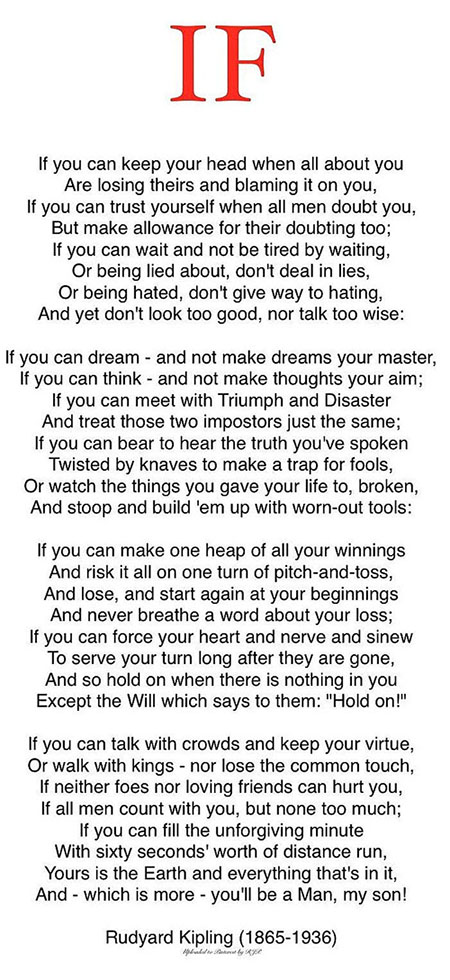Change Your Mind, Change Your Brain
Alan Watts
What contributions do our thoughts have in wellness or sickness?….. The “busy mind” is quick to blame the disharmony on the world “without,” ignoring our own creation of thought and feeling “within.”…. Simply stated, what the mind focuses upon, can become physical matter…..Expansive, peaceful thoughts and feelings lead to an adaptive repertoire of healthy, “happy matter molecules,” in our body.
How you imagine the world determines how you live in it.
David Suzuki, Zen Master
There is more to life than increasing its speed.
Mahatma Gandhi
Chatter is the expression of clutter in a disquieted mind.
Dr. Darryl Luke Pokea
A mind once stretched can never return to its original dimension.
Albert Einstein
Depression is a sign that things are not healthy in the mind, but you cannot merely replace it by frantically by keeping busy or ignoring your mind affecting your body. You can look at all the illusions and misperceptions in the mind through meditation and contemplation and then let go of them to make new space for Light to re-place the spaces they used to occupy in your mind and body.
Dr. Darryl Luke Pokea

Psychologists have estimated that, on average, we have as many as 60,000 thoughts per day. Our minds are certainly busy and often chatter constantly. Each of those thoughts, at the physical brain level, is releasing a shower of chemicals. These chemicals, in turn transfer their information messages throughout the body. Though we tend to believe that mind and body are separate in the Western world, they are interconnected, and the body is continuously affected by our thoughts.
It has been estimated that 95-98% of those 60,000 thoughts, are repeated daily. Perhaps this could be called “addiction to stale thinking.” As with all addictions, we don’t realize the repetition of our thoughts and emotional reactions are habitual. We tend to fear the unknown, and as a result continue the same thoughts. This fosters a false sense of comfort. We can become imprisoned by the illusion of certainty, particularly if we perceive that we are thinking just like everyone else.
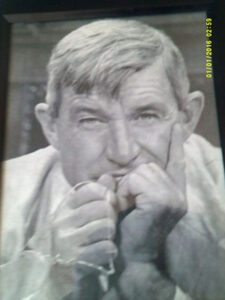
When thoughts are so numerous and repetitious, we cannot perceive the Divine oneness that we all participate in. We can only begin to perceive that oneness, if we quiet our mind and listen to our Spirit. Our Creative Mind is unlimited since the Universal Spirit unites and shares all creative thought given through each of our Spirits. With congested thoughts, the metaphysical dilemma can be the false worship of the creations of our own mind. We can be fooled by our own thinking and preoccupation with our thoughts. Without fully realizing it, our awareness of participation in Universal Consciousness becomes limited.
Within the physical dimension, our body, can similarly be limited because it is connected to the mind. Congested thought also can congest the body’s systems. Sickness may be viewed as a state of being fixed, inflexible, or the absence of ever-changing Divine flow. In a more comprehensive perspective, a state of wellness may be viewed as flexibility and openness to the Divine energy that restores, renews, and heals.
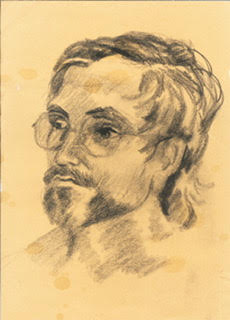
What contributions do our thoughts have in wellness or sickness? Simply stated, what the mind focuses upon, can become physical matter. Neuroscience tells us that this occurs first as the matter of molecules or neuropeptides (fluid proteins) are formed by thoughts and feelings and then released throughout the body. Expansive, peaceful thoughts and feelings lead to an adaptive repertoire of healthy, “happy matter molecules,” in our body. This “mattering” is manifest in subtle ways, often deep in our tissues and organs. The cells themselves can remain flexible and joyful, as they too dance in life, in sync with infinite change.
Likewise, when habits in thinking and feeling are unchanging and in a state of repetition, the same molecules of chemicals are produced over and over. They can drive the body into inflexible, uncomfortable states… “dis-ease.” Our own negative thinking and feeling can entrap and limit ourselves, and we can ignore our responsibility in making ourselves sick.
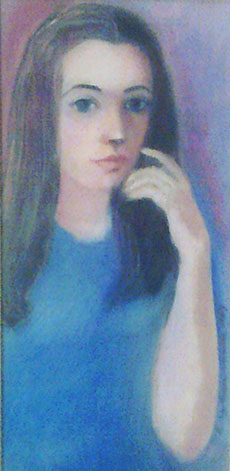
What is perceived as disharmonious outside ourselves, may really be the disharmony of our thoughts and feelings inside ourselves. It is easy to get distracted by trying to change the thoughts and feelings of others in our attempt to make our own inner world more peaceful. The “busy mind” is quick to blame the disharmony on the world “without,” ignoring our own creation of thought and feeling “within.” The molecules released make us feel sick when we feel helpless in trying to change the world. We deny our participation in creating these inner helpless states, that then become the “matter” of our body. In addiction, repetitious thoughts distract us from our own Spirit which is connected to Divine healing.
We must always realize that at best, we can only influence the external world, but never control it. The choices are to participate in our connection to the Divine or to disconnect and go off into our own stale mindsets, and those of the world. The later leads to endless frustration, disharmony of mind, and “dis-ease” in the body. The former leads to the unlimited consciousness of the Divine, the awakening to what we all really are.
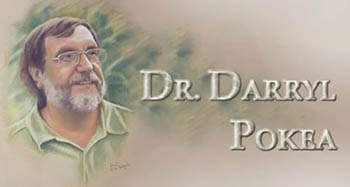
– Darryl Pokea, Psy.D.
The physical manifestation of our mind is our brain matter. Its’ cells long for stimulation and are healthiest when they are infinitely exploring. They seek to connect with one another so that their sum is greater than the whole. They starve for something new when there is a stale diet of the same patterns of thought and feeling. In this view, our thoughts may be just as important as what we eat. They become the flesh or matter in our physical bodies. The words we express about ourselves and others manifest in the body. When we have Divinely guided loving thoughts towards ourselves and others, the internal ecology of our body becomes balanced and harmonious. This in turn, can influence the external ecologies of this universe.
The Gospel of John has this profound yet simple teaching where he states, “the Word became flesh and dwelt among us.” That word was “love,” and it can continue to become flesh. Every thought (word) we have can become matter in ourselves. We can choose what we want our matter to be, and even influence what the matter of our species can evolve towards. We can let love matter within and without. It is here if we let it evolve as it already is within each of us. This Mindfulness of life’s natural, active participation in love and compassion, may be more important to our species’ evolving consciousness than the “information highway.”
If we are busy thinking thoughts all the time, most of which are repetitious ones, can the invitations of Spirit be heard? Prayer, meditation, relaxation, and truly loving playful re-creation may allow moments between thoughts to accept the invitation.
Whose thoughts do we want to have? The stale repetitious ones or those offered by participating in love and compassion.
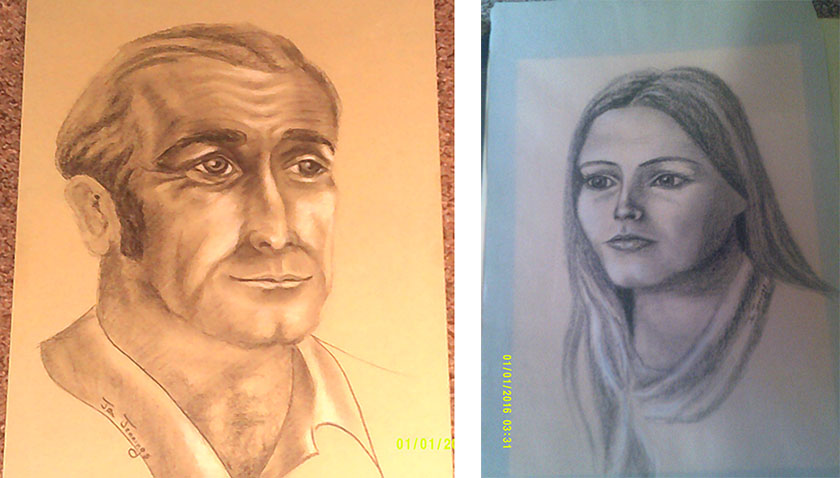
“Why Knot”, a satiric play by Jan Jennings, artist
Negative thinking narrows thoughts that can manifest in habitual self-destructive behaviors. This may be thought of as “karma”, that we pattern within our daily lives and occurs when we simply do not realize what we are doing to ourselves.
Dr. Darryl Luke Pokea
Fundamental among [man’s] inner powers, and the one to which priority should be given, is the tremendous, unrealized potency of man’s will. It’s training and use constitute the foundation of all endeavors. There are two reasons for this: the first is the will’s central position in man’s personality and its intimate connection with the core of being—his very self. The second is the will’s function in deciding what is to be done, in applying all the necessary means for its realization and in persisting in the task in the face of all obstacles and difficulties….Therefore I believe that the right procedure is to postpone all intellectual discussions and theories on the subject and begin by discovering the reality and the nature of the will through the direct existential experience.
Roberto Assagioli
Thoughts are energy and attention sends energy to aid the body’s healing process. So too is that true with psychological pain. When we can get past the immediate impulse to deny it, to run away, blame someone, or sugarcoat it with positive platitudes, then we can allow ourselves to feel the pain which is actually healing. The mere act of feeling the pain is sending energy for healing. We can then open ourselves to the inner lessons, so passion, and understanding that come from deep within our self; to see the big picture from an elevated perspective. If you deny what is happening, if you run away from it, it festers and becomes infected. It grows in the dark and controls us in ways we don’t realize because we don’t want to look at it.
Jan Jennings
Don’t Think Too Much
Alan Watts
